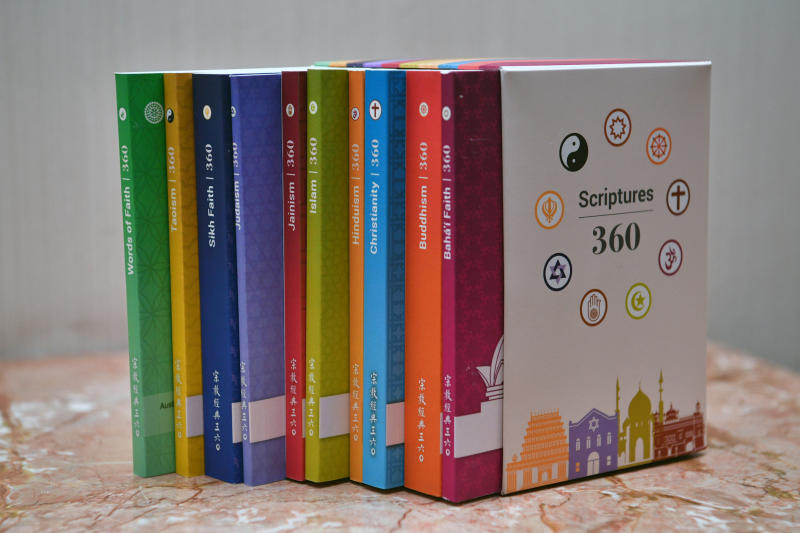Keep religion out of politics, S'poreans say; young people more accepting of extremists sharing views online: IPS report
Sign up now: Get ST's newsletters delivered to your inbox

A set of books by Singapore religious groups titled 360. Most Singaporeans feel that having different religious views is no barrier to getting along when living in close proximity, a new report by the Institute of Policy Studies found.
PHOTO: ST FILE
Follow topic:
SINGAPORE - Most Singaporeans may be religious but they still frown on religious behaviour that could influence politics or disrupt social harmony, a new report by the Institute of Policy Studies (IPS) has found.
They also feel that having different religious views is no barrier to getting along when living in close proximity.
But the researchers noted that a sizeable number of Singaporeans have no qualms about allowing religious extremists to publish their views online or hold public meetings to talk about them.
Roughly four in 10 younger people aged between 18 and 25 years felt that publishing was acceptable, possibly because of this group's increasingly liberal attitudes towards free speech, the paper's authors said. This is despite the fact that there was nearly universal agreement that it is unacceptable for religious leaders to incite hatred or violence against other religions.
"Religion is an influential and powerful force, and seeps into multiple domains of public and private life," the paper said. "Tracking the expansive reach and influence of religion is thus crucial in maintaining inter-religious harmony and surveying public sentiment in public policy."
The paper's findings on Singaporeans' attitudes towards religion were part of a larger international study of religion involving multiple countries.
The local component surveyed 1,800 Singapore residents on their religious beliefs and how these influence their views on issues such as abortion, public policy and religious harmony. Face-to-face interviews were carried out between August and December last year by Singapore-based market research company ML Research Consultants.
Seven in 10 respondents said they feel that people from different religious backgrounds can get along when living close together.
Even so, around 15 per cent of people said they found Muslims at least somewhat threatening. This was higher than what was reported for any other religious group.
Researchers found that those who live in private housing estates or landed property were more likely to see Muslims as threats compared with those who live in public housing. On the other hand, those who had more trust in secular institutions were less likely to think that way.
The majority agreed that a country's laws should not be based on a particular religion, but were divided when asked what they would do if a hypothetical law contradicts their religious principles.
About half said they would follow the new law while a third said they would stick to their religious teachings. Christians, Catholics and Muslims were most likely to follow their religious principles over the law.
The majority also said that religious leaders should not comment on politics or try to influence how people vote in elections. They were, however, slightly more accepting of religious leaders speaking up against laws that contradict their religious teachings.
Around half of Christians and Catholics felt this way. People who were less educated or younger also tended to believe this.
Religion was also found to influence people's views on moral issues such as infidelity, abortion and homosexual sex.
Some 82 per cent felt that sexual relations with a person other than one's spouse is always wrong. Nearly 70 per cent felt that sexual relations between two adults of the same sex is always wrong, while about 40 per cent felt that abortion is always wrong, even if the family has very low income.
Researchers noted, however, that better educated and younger respondents, as well as those with no religion, tended to have more liberal attitudes towards these issues.
Half of those with no religion said homosexual sex is always wrong while nearly 80 per cent of those with a secondary school education or lower felt the same way.

